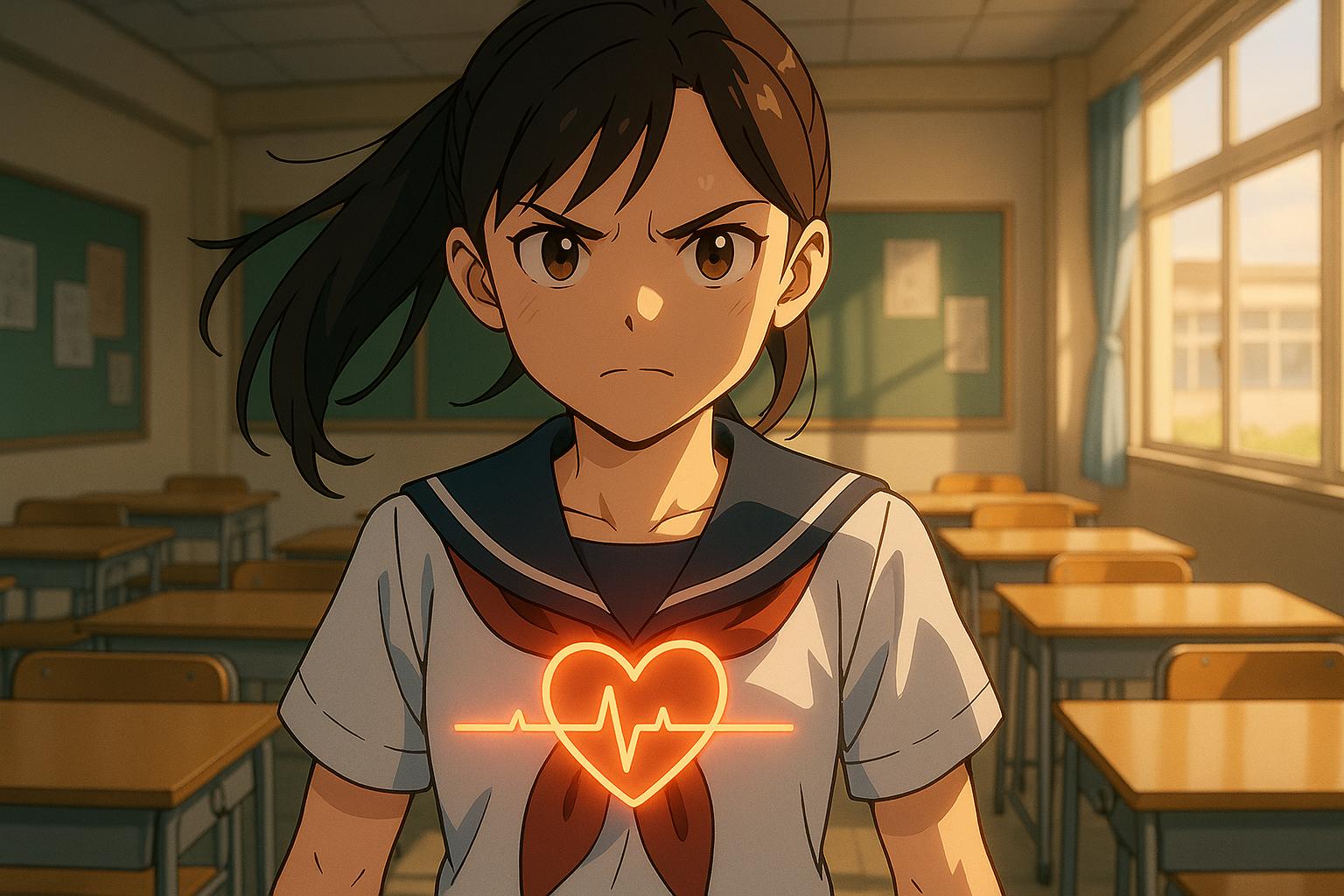A teenager's harrowing experience has spurred urgent conversations about the misdiagnosis of cardiac issues and the need for heightened awareness regarding heart health in young people. Evelyn Walker, a 17-year-old student from Hitchin, Hertfordshire, found herself in a life-threatening situation after suffering a cardiac arrest at her school. Her ordeal serves as a critical reminder of the importance of listening to one’s body and seeking thorough medical investigation, particularly when symptoms like chest pain arise.
On February 7, Evelyn collapsed in the middle of her morning lesson, requiring immediate CPR from her teachers. Remarkably, her heart had reportedly stopped for approximately five minutes before paramedics revived her and rushed her to Addenbrooke's Hospital in Cambridge. There, she was placed into a coma for three days, culminating in the installation of an internal defibrillator to stabilise her heart rhythm and prevent further incidents.
Initially, Evelyn had been experiencing mild chest pains prior to the incident, which she had reported to her general practitioner two years earlier. Unfortunately, her symptoms were dismissed as mere anxiety—a common issue when young patients present with seemingly trivial complaints. "I’m sure if I was over 60 complaining of chest pain, they would’ve looked into it further," Evelyn reflected, expressing frustration over the delay in seeking proper care. Such dismissals in young patients underscore a troubling trend, where age can often bias the seriousness attributed to symptoms, potentially leading to catastrophic outcomes.
Evelyn's experience is not isolated. Data from the NHS indicate a concerning rise in heart-related issues among younger adults, particularly a staggering 95% increase in heart attack cases among those aged 25 to 29 over the past decade. Despite the small numbers, these spikes are alarming and indicative of broader public health trends, including rising obesity rates and their associated complications, such as hypertension and diabetes.
Evelyn’s mother, Jennifer, has since launched a Facebook page named 'Young Hearts UK' to share awareness around sudden cardiac arrests in younger demographics. She believes that increased education in CPR and defibrillator usage can create a more prepared population. “If doctors had just done a five-minute ECG, they would’ve seen Evelyn’s results weren’t normal,” she stated, emphasising the need for better diagnostic practices.
A parallel narrative emerges from studies indicating that cardiac arrest can lead to long-term behavioural changes, including increased anxiety and social interaction difficulties among survivors. Understanding these psychological impacts is crucial, as families navigate the aftermath of such life-altering experiences. Though research shows survivors can face certain challenges, many maintain relatively positive mental health outcomes.
Highlighting similar cases can further stress the pressing need for awareness and the importance of quick response in emergencies. Instances of cardiac arrests in seemingly healthy teenagers—like a young athlete during a basketball tryout or participants in academic settings—point to a collective gap in preparedness across educational institutions. The deployment of automated external defibrillators (AEDs) and robust CPR training programmes in schools have been identified as critical measures for mitigating the risks associated with sudden cardiac events.
Evelyn Walker’s story, fraught with the complexity of misdiagnosis and the subsequent rush to medical intervention, is a stark reminder of the unpredictability of health and the critical importance of advocacy. As the conversation around young cardiac health continues to evolve, her experience may well save lives as it prompts others to heed their own symptoms and seek appropriate care. In a landscape where cardiac health is often overlooked in youth, it becomes imperative that the dialogue shifts, ensuring that symptoms are met with the right level of urgency, irrespective of age.
The growing awareness of such phenomena may not only change policies but also foster a more informed society, where young individuals feel empowered to speak up about their health concerns and insist on thorough medical evaluations.
Reference Map
- Paragraphs 1-2, 4-5, 7
- Paragraph 3
- Paragraph 6
- Paragraph 8
Source: Noah Wire Services
